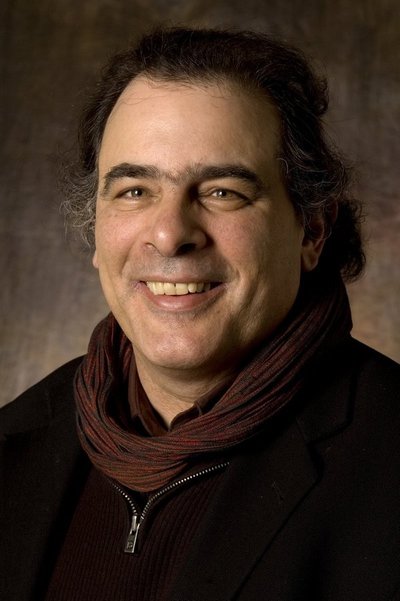June 26, 2008
Prof’s gift funds environmental justice studies
Devon Pena has spent his career working for environmental justice. Now he, along with his sister Tania Hernandez, is funding three endowed fellowships to support graduate students working in that area. He hopes eventually to support five graduate students, and his long-term dream is to have an interdisciplinary Environmental Justice Studies program in the new College of the Environment.
Pena, who has a joint appointment in American Ethnic Studies and Anthropology, and Hernandez have completed the endowment for one fellowship at $100,000 — matched by state and Graduate School funds — and have pledged an additional $250,000 for two more. They expect that students will be able to use these fellowships beginning in 2010-2011.
“We envision this really as a very long-term relationship,” Pena said. “We’re both young and healthy. I’m not planning to retire soon. We plan to give $1 million over the next 10 years.”
The fellowships are in memory of Pena’s father, Alfonso Carlos Pena, who was born in poverty but went on to become a self-made millionaire who always gave back to the community — a model his son has tried to follow.
Environmental justice, according to Pena, grew out of the civil rights, environmental and labor movements. “People of color have been disproportionately impacted by environmental harm and risk,” he said. “They’re more likely to be living in communities with toxic waste dumps, drinking contaminated water and breathing contaminated air, living in homes with lead paint and working in hazardous jobs. And on the other side, they’re less likely to have environmental amenities like open space and parks.”
The movement’s big success story was Executive Order 12898, signed by President Bill Clinton in 1994. The order states: “Each federal agency shall make environmental justice part of its mission by identifying and addressing, as appropriate, disproportionately high and adverse human health or environmental effects of its programs, policies and activities on minority populations and low income populations in the United States.…”
Although the order was a big step forward, Pena said it also created an as-yet unmet need for experts in the area. “I’m one of probably two dozen people in the country who are called on to be environmental justice experts, whether it’s a landfill permit hearing, or a court case involving some litigation related to environmental justice or the implications of Executive Order 12898,” he said. “Those of us who do this can’t meet all the demands for our expertise. So one of the immediate goals of our graduate fellowship program would be to help train students to serve in this way.”
Pena emphasized that experts are needed with widely varying backgrounds. A student with a background in, say, Environmental Health, might testify in cases that he, with his background in agricultural ecology and food science, wouldn’t be appropriate for.
The fellowship program will be administered initially through the American Ethnic Studies Department. The department doesn’t currently have a graduate program, but Pena said a proposal will be presented this fall to the dean and divisional dean for the College of Arts and Sciences to create one — a program that would be focused on environmental justice.
But he thinks the program should and will span departmental boundaries through the College of the Environment. “The College of the Environment is a perfect nesting ground for us to locate an environmental justice program that would bring together many different units, including American Ethnic Studies, Women Studies, the Indigenous Wellness Research Institute and other academic units we’re going to be talking to in the course of the summer,” Pena said. “We want to create a truly interdisciplinary program.”
Provost Phyllis Wise is thrilled with the gift. “The very generous gift from Devon and his family will allow us to attract outstanding graduate students who will focus their learning on issues of environmental justice,” she said. “This is an area that needs people with the kind of rich educational experience that the UW will be able to provide through interdisciplinary programs that span several colleges, including the new College of the Environment.”
This isn’t the first time Pena and Hernandez have given money for graduate student support. The two have a grant making foundation, the Acequia Institute, which awards three fellowships every year to graduate students doing research on sustainable agriculture and environmental justice issues. Some UW students have been awarded the fellowships, but the program is open to students nationwide.
The two also have a farm in Colorado that is part of a self-governing cooperative. Pena’s students have used it and other sites affiliated with the Acequia Institute as research sites.
“Our profits on the farm go back into the foundation to support graduate students,” Pena said. “I’m a professor but I’m also a farmer, an entrepreneur and an investor who wants to give back. As long as I’m alive I’m going to be doing this because the University has treated me well and I want to share with this honestly wonderful institution. Teaching and learning is ultimately what it’s all about.”



